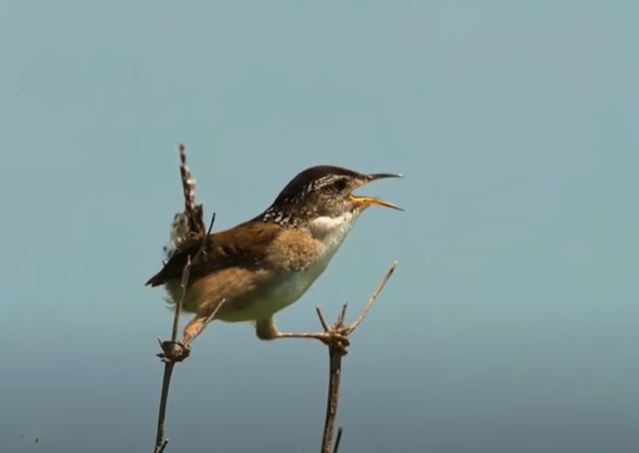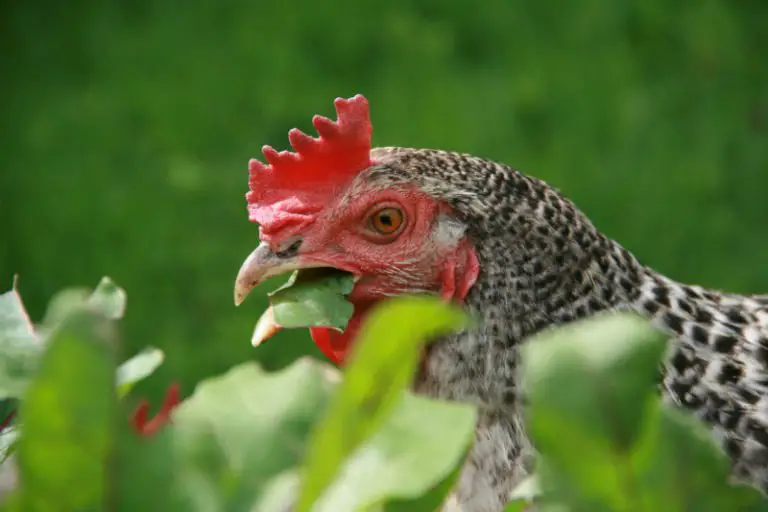Why Do Birds Chirp In Their Sleep? (Short Answer)

Humans are not the only living things that can make sounds or talk in their sleep, birds can also chirp in their sleep and this has been studied.
The reason why birds sing in their sleep, especially young birds, is due to part of their cognitive process of being able to sing, this fact is also visible in humans, sleep plays an important role in learning to speak or sing.
During the day, young birds listen to their parents’ chirping and try to sing to reproduce the same sounds. At night the birds remain silent, but their corresponding brain nerves are just as active as when they chirp during the day and so they can chirp in their sleep.
This fact was discovered through research conducted by researchers at the University of Chicago, where the brain activities of young birds were recorded both during the day and at night.
While the birds were singing during the day, the nerves showed a certain pattern of activity. While they slept quietly or while listening to their own singing, the nerves were almost as active as if the bird itself were singing.
This suggests that birds dream of singing, seemingly, they can store the active nerves when they sing during the day and then practice at night.
One of the main conclusions derived from the study performed on birds is that the song is actually encoded in the brain. The learning process of the song would actually be learning to produce a sequence of small movements.
This could be similar in other species and other behaviors such as, for example, in humans the production of speech, or the performance of athletes or musicians.
Which bird sings at night?
Some bird species not only chirp while sleeping at night, some are simply nocturnal birds and chirp at night, one of the few songbirds that actually sing at night is the nightingale ( Luscinia megarhynchos ). This bird is common in Europe and some Asian countries.
The partridge is another known bird that can still chirp even after dusk has fallen.
Other birds that sing at night:
- Night Heron (Nycticorax nycticorax).
- Nightingale (Luscinia megarhynchos)
- Great Warbler (Icteria virens)
- Rufous-hooded Nightjar (Antrostomus vociferus)
- Hermit Thrush (Catharus guttatus)
- Blackbird (Turdus merula)
- European Robin (Erithacus rubecula)
Why do birds sing in the morning?
Generally, birds sing to mark their territory, or as a call to other birds, birds choose the morning to sing since it is the time when there is a lower level of noise pollution, which increases throughout the morning as the city wakes up.
The birdsong is not only dependent on the brightness but also depends on the temperatures and even the noises of the environment. The chirping not only serves to attract females, but many birds also use it to mark out their territory.
The intention becomes particularly clear through the duration, the volume as well as the repetitions and modifications.
How to stop birds chirping at night?
It is difficult to stop birds from chirping at night, but certain measures can be taken to prevent this from happening.
In the particular case that you have the birds in your environment in cages, you should try not to alter their sleeping pattern, most birds sleep at night and wake up at dawn.
If they are in an environment with a lot of noise pollution during the night, or if they are in a place with a lot of movement, it is possible that their sleep during the night will be interrupted which will lead them to sleep during the day.
A bird awake at night will be chirping, because it has already slept during the day and also, at night it will usually find more silence than during the daytime and birds love to chirp when there is silence so that their call is better propagated.
How can you stop birds from chirping at night outside?
A bird singing outside the house at night can be quite annoying, if you feel too annoyed at night, earplugs are your first choice.
In reality, you can’t really scare birds away from a far distance unless you run outside several times in a row and scare them away with a broom, shouting, and other aggressive actions.
However, if there is a robin singing in your yard or in front of your window at night, then you can avoid the birds singing by simply eliminating nearby light sources.
Robins sing at night when there is a lot of light, for example when there is a full moon, when there is strong lighting around the house or garden, or when there are streetlights nearby.






